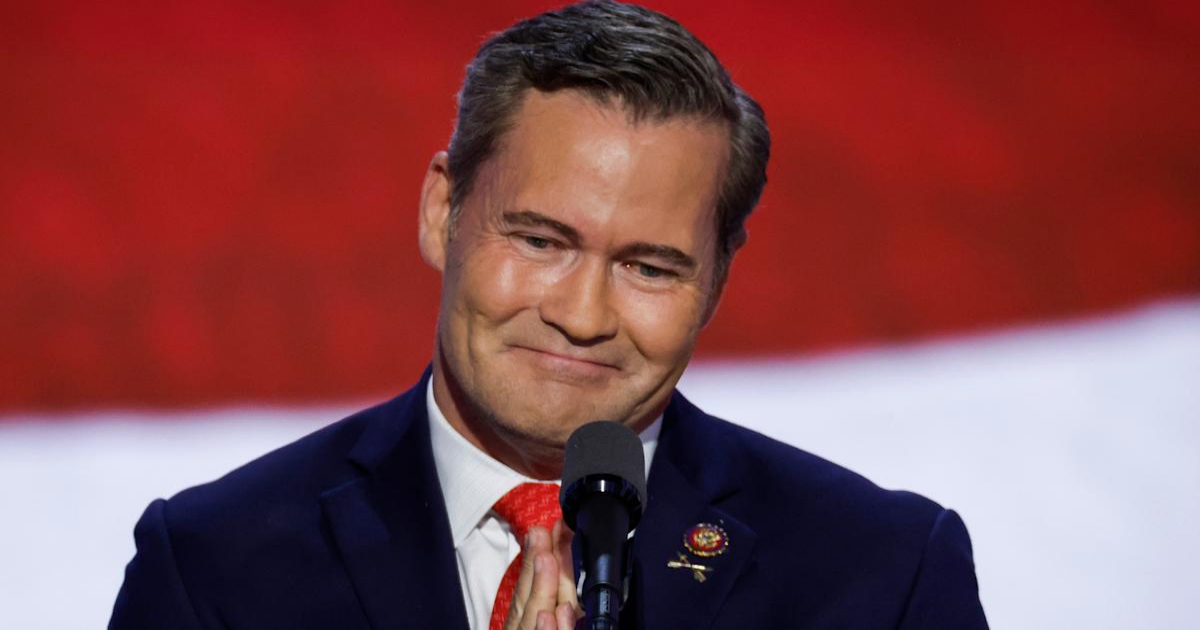When it rains, it pours—at least that’s the case for Mike Waltz and the country’s top national security officials this week.
After President Donald Trump’s national security adviser accidentally added a prominent journalist to a private Signal chat with more than a dozen top government officials, it emerged that he had made another digital blunder: leaving his Venmo friends list set to public.
And that’s not all. German news magazine Der Spiegel also reported Wednesday that it had found email addresses, mobile phone numbers, and even passwords belonging to a number of top Trump officials online. The information on Waltz, Defense Secretary Pege Hegseth, and Director of National Intelligence Tulsi Gabbard was reportedly available via commercial data-search services and showed up in several recent dumps of hacked data that ended up online.
Der Spiegel added that “most” of the numbers and emails it found appeared to still be in use, with some tied to accounts on social media sites like LinkedIn, Instagram, or messaging service WhatsApp.
The incidents this week have shone a massive spotlight on the administration’s seemingly shoddy data security practices, just a few months into Trump’s tenure.
Wired was the first to report Wednesday that Waltz still had a public Venmo profile—and that it was filled with prominent journalists.
The outlet claimed that the account, which used the name “Michael Waltz” and had a profile picture with Waltz in it, included a public 328-person friend list. Members on the list apparently ranged from media figures and journalists to colleagues within the Trump administration, like U.S. National Security Council staffer Walker Barrett.
Susie Wiles listens as Donald Trump speaks after being declared the winner during an election night watch party at the Palm Beach County Convention Center in West Palm Beach, Florida in the early hours of Wednesday, Nov. 06, 2024. / Jabin Botsford/The Washington Post via Getty Images
One notable member of the list was White House Chief of Staff Susie Wiles, who seemingly also had her own public 182-person friend list filled with names like U.S. Attorney General Pam Bondi. Wired reports that none of Waltz’s or Wiles’ financial transactions were public on Venmo, but that it seemed that they had simply not selected to make their friend list private.
Though the White House apparently declined to comment on the Venmo accounts to Wired, the outlet claimed that Waltz’s and Wiles’ profiles went private shortly after they reached out.
In a statement to the Daily Beast, White House spokesperson Anna Kelly said: “Passwords and accounts associated with these reported leaks are as much as a decade old, and passwords have long been changed.”
On Monday, The Atlantic’s Jeffrey Goldberg published a viral report detailing the brief period he was inadvertently added to the Signal group chat, which existed to discuss then-upcoming military operations in Yemen.
The stunning incident and its aftermath has led many pundits and politicians on both sides of the aisle to question the Trump administration’s handling of potentially classified materials and digital security.
Although White House Press Secretary Karoline Leavitt has repeatedly brushed off the text chain leak and claimed that no classified information was revealed, President Donald Trump seemed less sure on Wednesday, telling reporters: “I don’t know. I’m not sure. You’ll have to ask the various people involved. I really don’t know.”

